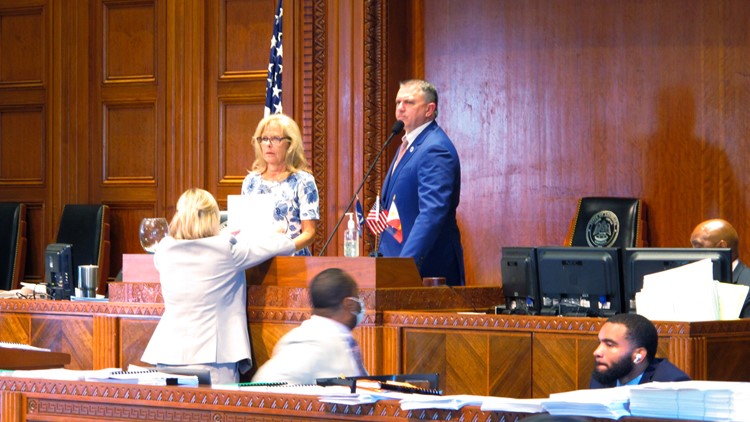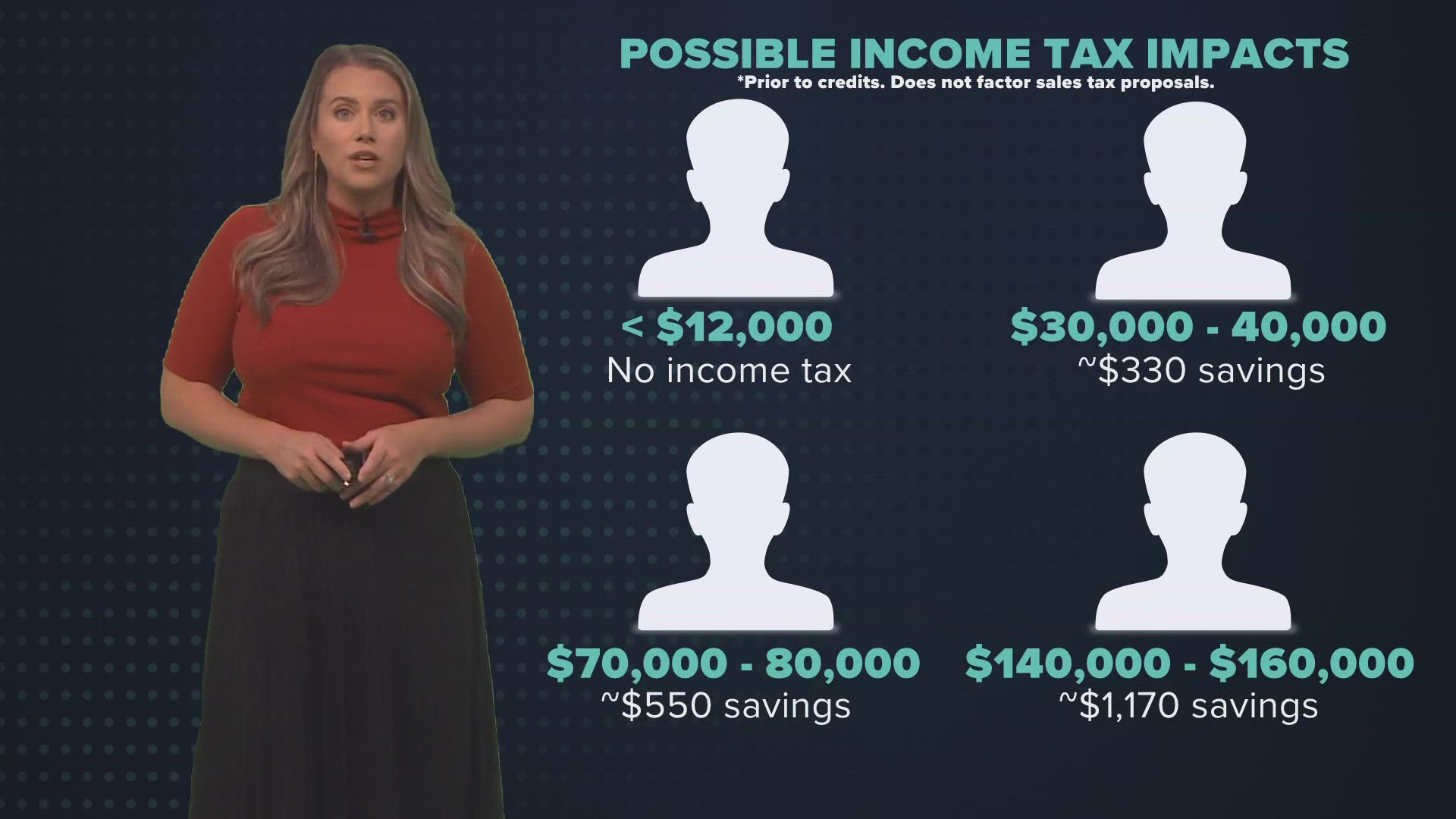BATON ROUGE, La. — Louisiana's legislative session saw lawmakers engage in many of the same cultural clashes as their counterparts in other states and several of their own unique disputes, but with some surprising outcomes.
The majority-Republican House and Senate didn't follow other GOP-led states in enacting broad new restrictions on voting rights or on teaching about race and racism. Meanwhile, local scandals involving Louisiana State University and the Louisiana State Police didn't drive discussions as much as expected in the nine-week session, and neither entity suffered severe consequences.
Once again, the Louisiana Legislature bucked some expected trends.
While Republicans in other states pushed bills to limit voter access to the polls, Louisiana’s Legislature largely avoided those contentious debates. Instead, lawmakers agreed to add four days to Louisiana's early voting period for presidential elections.
They did have heated debates, however, over how Louisiana should handle replacing its 10,000 voting machines, many of which are decades old. In those discussions, some Republicans repeated baseless allegations of widespread fraud in other states during the 2020 presidential election that former President Donald Trump lost.
Trump won Louisiana, and Secretary of State Kyle Ardoin vehemently defended Louisiana's elections system as safe, saying with exasperation at a legislative hearing: “The paranoia because of the national narrative is out of control.”
Most GOP lawmakers defended the Republican elections chief and his agency's performance, which likely helped stall any discussion of tightening voting restrictions. In addition, Democratic Gov. John Bel Edwards said he had no intention of signing any bills that made it harder to vote.
Louisiana didn't escape national arguments about classroom instruction on race in America. But the types of measures that passed in several Republican-controlled states didn't win support here, blocked by GOP House Speaker Clay Schexnayder, who won his job with the support of Black lawmakers.
Republican Rep. Ray Garofalo, of St. Bernard Parish, filed legislation aimed at blocking the teaching of critical race theory, an examination of the ways in which race and racism have influenced politics, culture, government systems and laws. The bill would have prohibited teaching that the United States or Louisiana is “systematically racist or sexist,” and forbidden use of information that “promotes divisive concepts.”
Schexnayder sought to keep Garofalo from pushing ahead with the bill, but Garofalo held an hours-long hearing anyway. The measure never got out of committee, but Garofalo's handling of the issue eventually cost him his job as chairman of the House Education Committee. Schexnayder booted him from the position, even as state Republican Party leaders rallied to defend Garofalo and his bill.
Efforts to revive the proposal failed to gain traction — but the debate stoked racial tensions that lingered across much of the legislative session, which ended June 10.
On the local front, a scandal involving LSU's botched response to claims of sexual misconduct provoked a tightening of regulations that Louisiana colleges will be required to follow in handling such allegations — but no direct penalties or strikes at the university beyond that.
LSU hired independent law firm Husch Blackwell to review its response to sexual misconduct complaints after reporting by USA Today scrutinized the university’s handling of assault cases implicating two former football players. The scathing report outlined multiple examples of the university ignoring student allegations of rape, domestic violence and assault.
Female lawmakers, who were particularly vocal in their anger about the findings, said they preferred to work on fixing the problems rather than stripping dollars from LSU's budget or taking other punitive actions.
Also escaping any direct legislative blowback was the Louisiana State Police, which is embroiled in controversy over its fatal arrest of Ronald Greene, a Black man whose May 2019 death is the subject of an ongoing federal civil rights investigation.
Greene died after he was stunned, punched and dragged by state troopers, and the State Police is accused of trying to cover up the circumstances. Troopers initially told Greene’s relatives he died in a crash following a chase near Monroe. Later, State Police issued a short statement saying troopers struggled with Greene during his arrest and he died on the way to the hospital.
The agency's police unit in northeastern Louisiana is under review to determine whether it has systematically targeted Black motorists for abuse.
Lawmakers spent little time discussing the investigations.
___
EDITOR’S NOTE: Melinda Deslatte has covered Louisiana politics for The Associated Press since 2000. Follow her at http://twitter.com/melindadeslatte.



